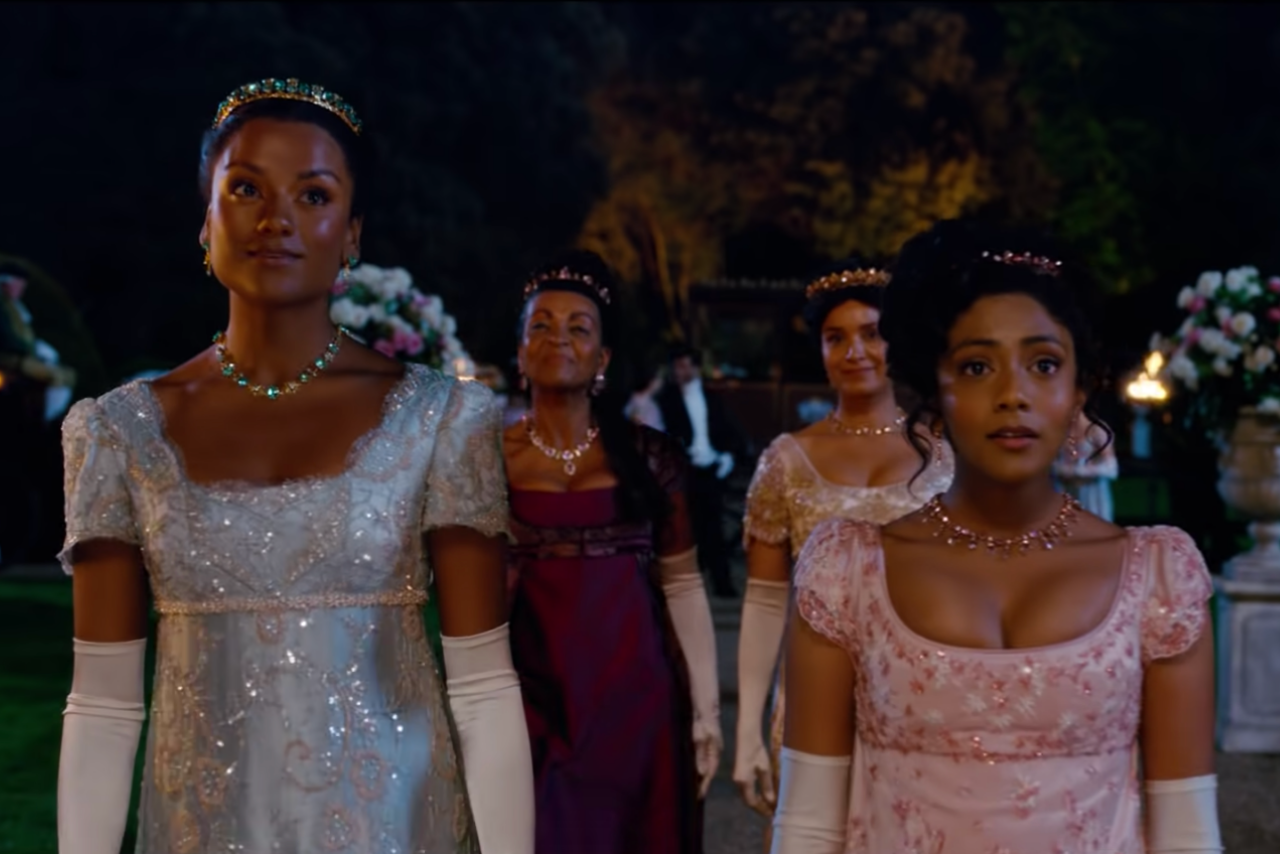In the 200 years since Jane Austen first published her novels, her famous stories have been adapted many times. In July, Netflix released the film version of Austen’s final novel, Persuasion, starring Dakota Johnson and Cosmo Jarvis. Thanks to recent Regency-era content, such as Emma. (2020) and Bridgerton, the movie had been greatly anticipated since it was first announced. Austen fans were excited by the prospect of an often overlooked novel gaining appreciation. But the film Netflix delivered was, to put it nicely, quite a disappointment.
The story of Persuasion follows 27-year-old Anne Elliot, the middle daughter of a financially struggling baronet. It begins eight years after Anne’s separation from Frederick Wentworth, the man she almost married, whom her family disapproved of. The stoic Anne must now face Captain Wentworth again when he returns to her social circle, and fearing that he hates her for breaking his heart, she must suppress her lingering love for him. For generations, Anne has been a favorite character of many Austen readers. Her quiet and serious demeanor has been a source of comfort for those of us who relate to her, and she has been a guidepost for so many.
Persuasion was published posthumously in 1817, six months after Austen’s death. Written at the end of her life, the more serious-toned novel has been a favorite of many. When Netflix first announced the project, Austen’s fanbase was ecstatic. Even those unfamiliar with her work were intrigued thanks to the recent Bridgerton craze. Yet when the film was released, it was met with less than favorable reviews.
In the hours following the drop, the internet was filled with reactions from audience members who were cringing through the film. The costumes were not only inaccurate to the period but also poorly done. The acting was wonderful from some actors, but less convincing from others. The script was, well, not the best I’ve read. Netflix took a much less serious approach than the novel originally had, mixing physical comedy, sarcasm, and fourth-wall-breaking narration that made the film difficult to sit through. Yet the aspect of the film Austen fans were most unhappy with was Anne’s character.
In the novel, Anne is a reserved woman, a loving friend and daughter who takes care of everyone around her. In the film, Anne is a loud, awkward, clumsy girl who always seems to be getting herself into predicaments. Most audience members came away thinking, this isn’t Anne Elliot. While Dakota Johnson is a great actress — trust me, I adore her — this role wasn’t meant for her. Her witty and sarcastic portrayal of Anne simply didn’t fit the story, and would have been more appropriate for a character like Elizabeth Bennet of Pride and Prejudice.
Some argue that taking creative liberties when adapting a novel into film should not be a crime, and that art is meant to be changed and experimented with. Usually, I would agree. But at what point does it cross the line from taking liberties to completely disregarding the soul of the master text? Similar changes were made in the 1999 adaptation of Mansfield Park, one of Austen’s novels that is somewhat controversial in its mixed reviews.
The protagonist, Fanny Price, is much like Anne in her introverted, serious ways. She, too, feels a sense of responsibility for her family and is highly moral — characteristics which some readers equate to dullness. However, much like with Anne, many of us find ourselves relating more to Fanny, and in turn, view Mansfield Park as one of our favorites. Yet Netflix seemed to take a leaf out of the 1999 adaptation’s book, a film that also tried to liven up Fanny’s character to make her seem more “interesting” to the audience. While that film did not stray quite as far from the novel — and certainly had a less cringe-worthy script — it is regarded amongst fans as being unfaithful to Fanny’s character.
This callback to another less-than-accurate adaptation was referenced frequently in early audience responses to Persuasion. Many were left wondering why this trend of changing more reserved female characters seems to happen. With adaptations such as the 2005 film Pride and Prejudice and the 2020 film Emma., strong-willed female characters like Elizabeth Bennet and Emma Woodhouse are rightfully admired by many viewers. But must all of Austen’s heroines be morphed to fit this mold as well? Those strong-willed characters are important, but they are not the only type of role model for young girls. Though I love Elizabeth and Emma, Anne will always be my true guidepost in life.
However, not all aspects of the film were bad. Some characters, like Sir Walter and Mary Musgrove, Anne’s father and sister, were exaggerated but well-done versions of their novel representations. Additionally, we must praise Netflix for following the lead of Bridgerton and hiring a diverse cast in a genre that tends to be needlessly and overwhelmingly white. But these positives were ultimately not enough to save the film. So many of the novel’s best parts, which were full of discussions on love, society, and gender roles, were excluded from the movie. By the time the end credits rolled around, I truly felt that what I had just watched was not Persuasion. Captain Wentworth may be “half agony, half hope,” but the movie was solely agony, leaving me running to my copy of the book and clutching it tightly.





